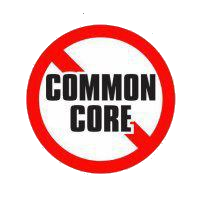The NH Dept. of Education promised the Federal Government that we would adopt the National Science Standards in our “No Child Left Behind” ILLEGAL waiver application.
This pdf (page 113) is directly from the 1996 National Science Education Standards that has become the CC Science standards. Read page 113 and how they changed their emphasis from prior standards (it sounds very similar):
Less emphasis on knowing scientific facts and information, more emphasis on understanding scientific concepts and developing abilities of inquiry.
Less emphasis on activities that demonstrate and verify scientific content, more emphasis on activities that investigate and analyze science questions.
Our favorite: Less emphasis on individuals and groups of students analyzing and synthesizing data without defending conclusions, more emphasis on “groups of students often analyzing and synthesizing data after defending conclusions
Another good one: Less emphasis on private communication of student ideas and conclusions to teacher, more emphasis on public communication of student ideas and work to classmates.
As you read through the file, you will see a HEAVY emphasis on “inquiry based” learning in science. What you wont read comes from this article in Science Daily:
Science News: Structure More Effective In High School Science Classes, Study Reveals
ScienceDaily (Mar. 28, 2009) — Self-led, self-structured inquiry may be the best method to train scientists at the college level and beyond, but it’s not the ideal way for all high school students to prepare for college science.
That’s according to findings of a study conducted by University of Virginia professor Robert Tai and Harvard University researcher Philip Sadler. Their study appears in this month’s International Journal of Science Education.
Data show that “autonomy doesn’t seem to hurt students who are strong in math and may, in fact, have a positive influence on their attitude toward science” Tai said. However, “Students with a weak math background who engaged in self-structured learning practices in high school may do as much as a full letter grade poorer in college science,” he said.
Tai, associate professor of education in U.Va.’s Curry School, and Sadler, director of the Harvard-Smithsonian Center for Astrophysics’ Science Education Department, conducted the study, which used data from a national survey of more than 8,000 high school science students.
“The findings suggest that students with lower levels of high school mathematics attainment had greater success in college science when they reported more teacher-structured laboratory experiences in high school,” Tai and Sadler report in their study, “Same Science for All? Interactive Association of Structure in Learning Activities and Academic Attainment Background on College Science Performance in the U.S.A.”
According to Tai, many secondary science classes are turning to a self-structured method of learning with the notion that students will discover science on their own. “Advocates should be sobered by this study’s findings,” Tai said.
“Self-structured instructional practices – sometimes referred to as self-led inquiry – have many advocates, but this study suggests that this approach does not fit all students,” Tai said. “Giving more guidance to some science students and more freedom to others seems likely to pay off in college.”
“Student-led projects and investigations do not appear to be as productive as other approaches to teaching science in high school,” Sadler said. “Increasing student autonomy may be motivated by the goal of providing experiences more akin to scientific research, but only the strongest students appear to get much out of such opportunities in most classrooms.”
Tai and Sadler point out in their report that it is important for a teacher to carefully decide how much guidance to provide in an inquiry-based teaching approach based on each student’s achievement. They write: “Of primary concern is the quality of student work produced in these activities. For many teachers who assign independent inquiry activities and rely on students to design and conduct them, the reality is that while some students may do good work, others languish.”
——————————————————————————–
Adapted from materials provided by University of Virginia, via EurekAlert!, a service of AAAS.
